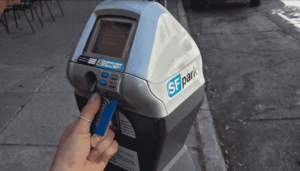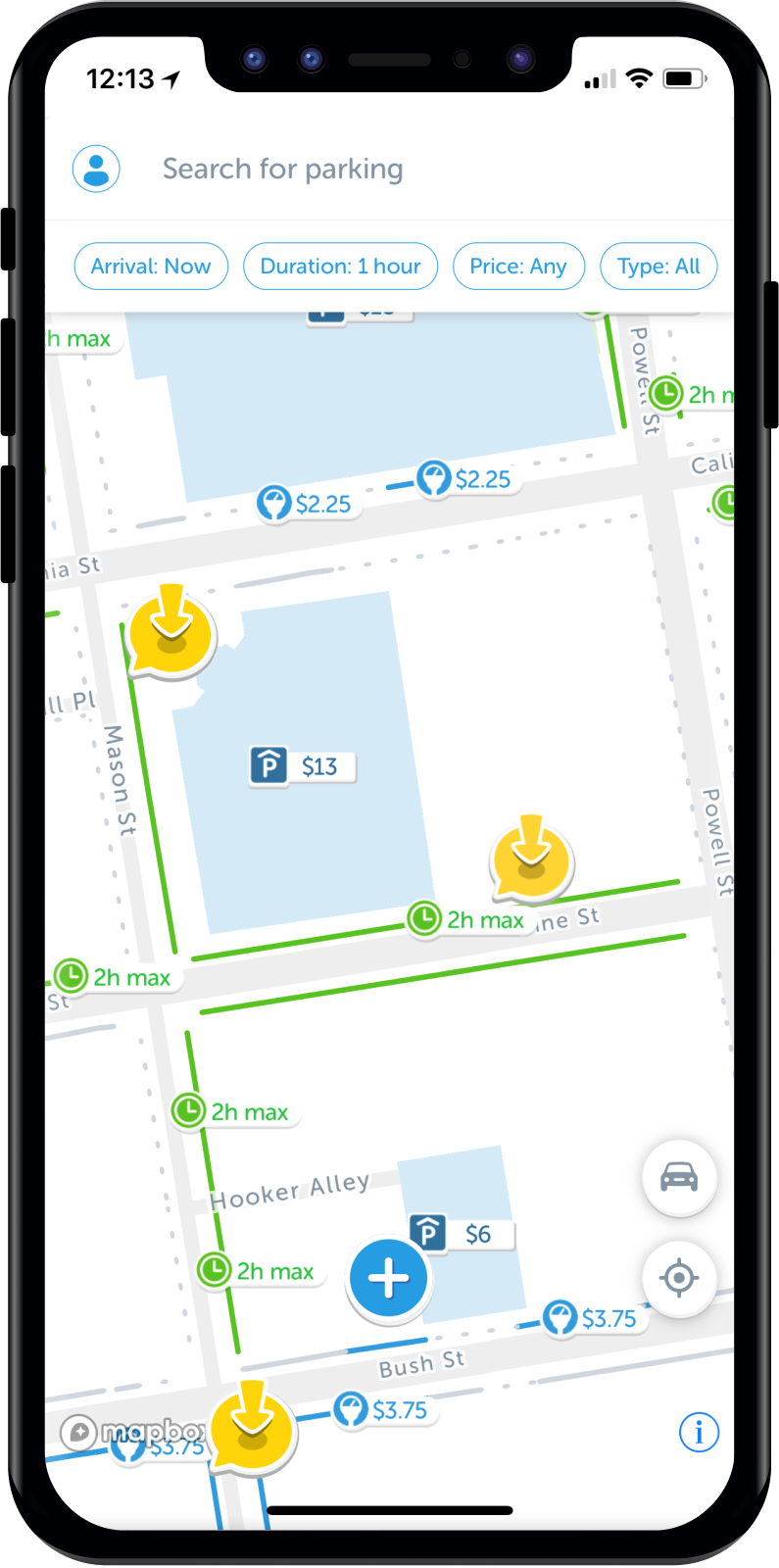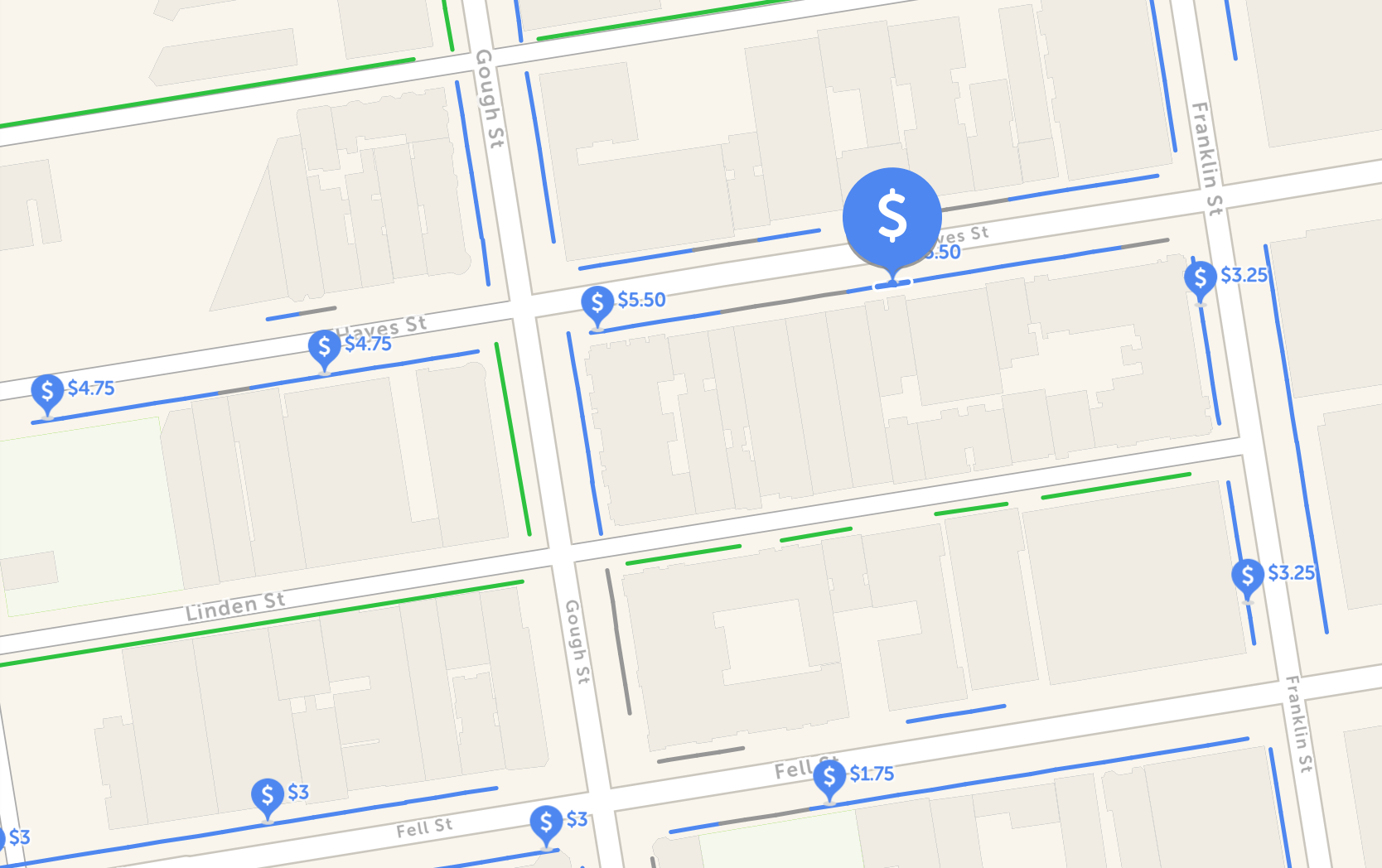San Francisco parking meters are the most advanced in the US. San Francisco Municipal Transportation Agency (SFMTA) has been experimenting with wireless “demand-responsive” meters for years now.
Unfortunately for residents, these parking meters also happen to be some of the most expensive in the country.
First of all, why does San Francisco need parking meters?
The first parking meter, known as Park-O-Meter No. 1, was installed on the southeast corner of what was then First Street and Robinson Avenue in Oklahoma City on July 16, 1935. Carl C. Magee, the man behind the first meter, was solving the problem of low turnover of cars in highly trafficked areas.
Quoting Donald Shoup, Professor of Urban Planning @ UCLA and Parking Guru:
“Cities should set the right price for curb parking because the wrong prices produces such bad results. Where curb parking is underpriced and overcrowded, a surprising share of traffic can be cruising in search of a lace to park.”
San Francisco parking meters exist to regulate the turnover rate of cars, to increase the likelihood to find an open spot and reduce street congestion.
What’s so special about San Francisco Parking Meters?
San Francisco parking meters are high-tech.

They communicate wirelessly with the SFpark (city) database and the parking meter rates are updated continuously.
They are easy to pay. San Francisco parking meters accept all forms of payment (coin; pay-by-phone; Visa, MasterCard and Discover credit cards; SFMTA parking card) and can be prepaid before hours of operation, starting 4:30am (except for parking meters near the waterfront who are managed by the Port of San Francisco not SFMTA).
Hours of Operation – San Francisco Parking Meters
- Most meters are enforced Monday through Saturday
- On Sunday parking meters are enforced in these locations:
- Fisherman’s Wharf
- The Embarcadero
- Special Event Area around AT&T Park during special events like baseball games
- Five off-street parking lots
- Meters don’t operate on Thanksgiving Day, Christmas Day, and New Year’s Day. They operate on all other holidays.
- Hours and rates vary in each neighborhood and can differ a lot from one block to another:
Demand-Responsive Parking Meters
In many places it’s hard to find parking and that’s because it’s not priced properly.
Quoting SFMTA in 2010:
“SFpark will charge the lowest possible hourly rate to achieve the right level of availability in both garages and at metered spaces. This project is not about raising parking revenue; it’s about making parking easier to find.
SFpark will use demand-responsive pricing to even out parking availability and reduce the need for circling. In pilot areas, meter pricing can range from between 25 cents an hour to a maximum of $6.00 an hour, depending on demand.
Parking rate changes will also affect City-owned garages and lots in pilot areas. Since many City-owned garages are currently underutilized, the prices are likely to decrease”
After years of experimenting in pilot areas, SFMTA decided to generalize demand-responsive parking rates in all of San Francisco. Rates will be adjusted every three months and could be as high as $8 an hour in high-volume areas, or as low as 50 cents an hour where parking is underused.
Read more about demand-responsive pricing for San Francisco parking meters
Parking meter colors, Broken meters…
Meter colors
- Green meters have either a 15 or 30-minute time limit.
- Red and yellow meters are designated for commercial loading; yellow for all commercial vehicles and red for vehicles with six or more wheels.
Read more about street parking San Francisco rules
Broken meters
If you’ve been living in the city long enough, you know there’s a chance to find a broken meter, especially if you’re parking in a not-so-safe area.
For SFMTA, a meter is considered broken only if it will accept no forms of payment. If you park at a broken or inoperable meter, parking is limited to the posted time limit or 2 hours, whichever is shorter. Shopping bags, shirts, or other unofficial items covering a meter that do not have an official SFMTA stamp and logo do not mean a meter is broken. You should remove the covering and check the meter: if it can accept any form of payment, then it is not broken and must be paid.
Other things you should know
- During events (usually baseball games), meters near AT&T Park charge special event rates of at least $7/hour.
- Most parking meters in San Francisco have a two-hour time limit, though SFpark areas have longer time limits (four hours or no time limit). Where there are time limits, “feeding the meter” (i.e., adding coins to extend the time beyond the legal limit) is not allowed and may result in a citation.
- The SFMTA cannot provide refunds for credit or debit card meter charges. Please contact your bank or credit card company to request a refund.
- Meters do not provide receipts or tickets.
For more convenience, see open spots and compare parking prices while on the go with the free SpotAngels app available on the Apple App Store and the Google Play Store.


2 Comments
It is 7am on May 13, 2025 and we are parked at the corner of 8th Avenue & Irving. We are from out of town and never used this type of meter before. We paid using a vISA card for 4 hours to meet a friend at The Beanery. No receipt came out of the meter so have no proof to show a meter person we have paid. We are going to leave our car, go have a cup of coffee and hope we don’t get towed.
Hey Gretchen, thanks for the comment! We hope everything went smooth!